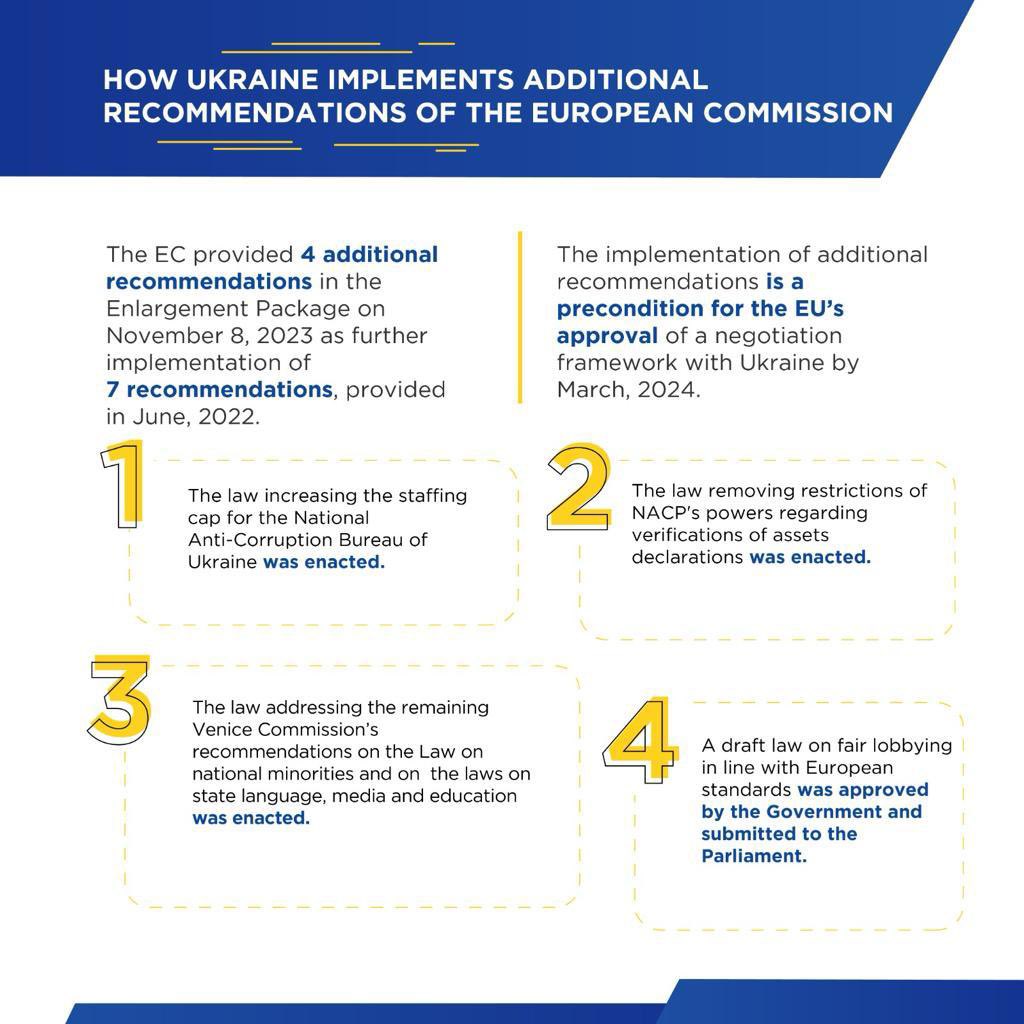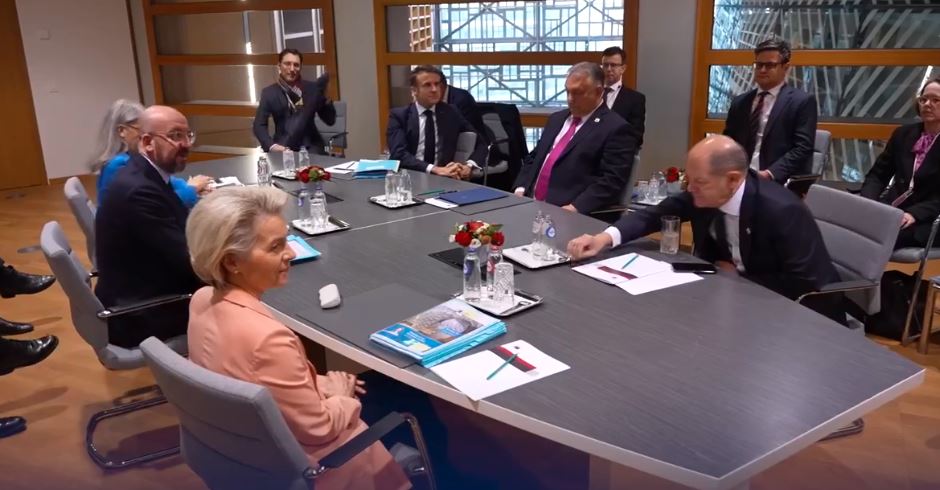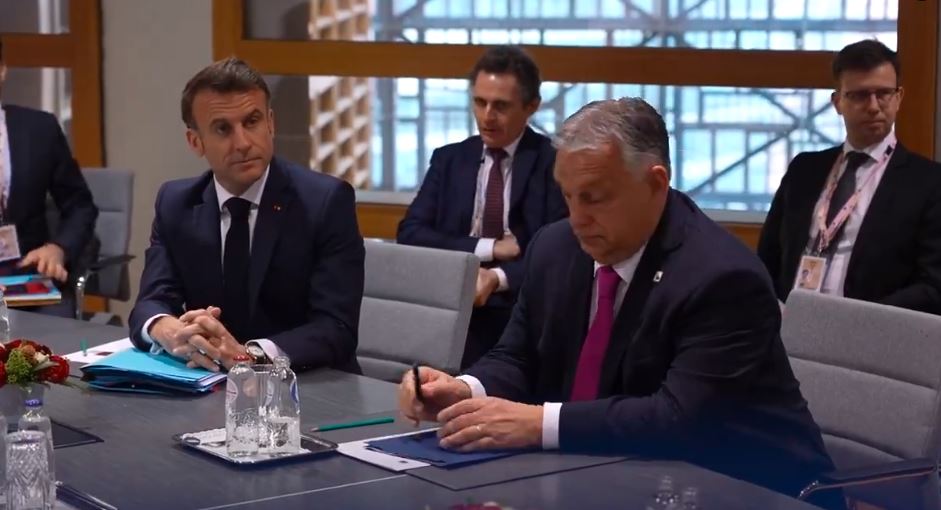EU leaders have prepared for long, difficult talks as the main intrigue looms over the 14-15 December summit in Brussels: will Hungary veto the decision to launch membership negotiations with Ukraine?
Although apart from Hungary, Austria had also joined in on opposing the opening of negotiations over concerns of equal conditions for the Western Balkans, experts questioned by European Pravda agree that its resistance could be overcome.
Hungary, however, seems to have vowed to fight to the last breath. However, EU leaders do not lose hope in persuading Hungarian Prime Minister Viktor Orban -- although the chances are no more than 20-30%, as a top official told journalists.
As Jens Geier, leader of the German Social Democrats in the European Parliament, put it, thanks to Orbán, Russian President Vladimir Putin "is also sitting at the summit table."
President Zelenskyy concurred: speaking over video link at the opening of the meeting, where he was not invited in person to avoid irking Orban, he said that Vladimir Putin will be the winner of the summit if EU leaders are indecisive.
Ahead of the launch of the meeting, Estonian Prime Minister Kaja Kallas told that leaders are resolute in adopting the EUR50 bn financial aid for Ukraine without resorting to Plan B:
"If it will be an absolute dead end, if we will sit here many days till Christmas or New Year, then we'll think about Plan B," she told European Pravda.
Crucial #EUCO meeting starts soon.
We must signal to the Kremlin that we are determined to stand behind Ukraine as much as it takes and give Ukraine long-term military aid.
Estonia has decided our long-term military aid to Ukraine will be 0.25% of our GDP over the next 4 years. pic.twitter.com/oB01NMLfjI
— Kaja Kallas (@kajakallas) December 14, 2023
Meanwhile, Finnish Prime Minister Petteri Orpo told he "packed many shirts," anticipating long and difficult negotiations that could stretch into the weekend. "It will take as much time as it takes," he said, stressing that the EU's reputation hinges on its ability to make a decision in favor of Ukraine.
"What we decide here or not is a clear signal to Moscow, Kyiv, Washington, and Beijing. So we have to make a decision in support of Ukraine," the Finnish prime minister said, stressing that EU member states must find a solution to Orban's blackmail.
Just ahead of the summit, the EU Commission unblocked EUR10 bn of frozen funds for Hungary, in hopes that this will be sufficient for Orban's approval of EUR50 bn for Ukraine.
However, despite rounds of sweet-talking from Ukrainian President Zelenskyy, Foreign Minister Dmytro Kuleba, French President Emmanuel Macron, and European Council President Charles Michel, on the eve of the summit, Orban stated that Hungary would insist that Ukraine's EU membership bid is replaced with a "strategic partnership."
Putin’s Trojan horse? Orban’s veto looms over Ukraine’s EU bid
Orban claims criteria for talks not met; EU Commission and Ukraine disagree
At the eleventh hour, however, he backflipped, telling reporters in Brussels that he doesn't oppose Ukraine's EU membership but that "procedures must be followed" and claimed that Ukraine has not met the criteria yet.
According to senior officials, Orbán has signaled he doesn’t want the EU to open accession negotiations before the EU election in June, arguing the decision could hurt his party’s results.
The EU Commission disagrees: in a report released on 8 November, recommended initiating formal negotiations for Ukraine’s accession to the European Union. It said that Ukraine fulfilled 90% of the prerequisites necessary to initiate negotiations and fully met four of seven required criteria.
Ahead of the summit, Ukraine was quickly passing laws to meet the rest. Olena Stefanishyna, Deputy Prime Minister for European and Euro-Atlantic integration of Ukraine, stated that "Ukraine has done its part, and delivered on everything with high speed. Now it’s up to the EU."
Stefanishyna shared infographics on how Ukraine meets all the membership criteria, including steps it has taken since the EU Commission's 8 November report to meet the remaining 10% by enhancing the capabilities of the National Anti-Corruption Bureau, adopting Venice Commission recommendations for Ukraine's laws on national minorities and laws of education, and a draft law on lobbying.

Some EU leaders do not lose hope they can persuade Orban to lift his veto. On the morning of the summit, EU Council President Charles Michel, French President Emmanuel Macron, and German Chancellor Olaf Scholz met with Orbán himself in an attempt to find a way forward.

The EU's failure to give Ukraine the financial and political green light would also send a signal to the USA, where Republicans are opposing more funding for Kyiv, Sweden's Prime Minister Ulf Kristersson told Financial Times ahead of the summit.
"If we want the US to stick to supporting Ukraine, Europe has to show the American people that we stick ourselves to supporting Ukraine,” he said.
Prime Minister of the Netherlands Mark Rutte, agrees: "Because of the developments in the US, where the delay is more due to internal reasons than to Ukraine, it is even more important that we make this decision now." He is one of the optimists, believing Orban can be persuaded so that the EU will arrive at a solution.
So does Irish Prime Minister Leo Varadkar.
"I don't think we can allow a signal from us to America that they should support Ukraine if we, Europeans, will not. Ukraine will not hold without the support of the European Union and the USA... If this support stopped – then Putin would win, and I don't even want to imagine the consequences for all of us," he emphasized.
He added that it might take many years for Ukraine to actually join the EU, but it's worth starting negotiations in 2024, because it will be of great significance for the moral spirit of the Ukrainians, European Pravda reported.
However, other EU leaders seem ready to give in to Orban's demands and delay the start of negotiations over Ukraine's membership, possibly until March 2024, Politico reported.
The summit's latest draft conclusions seen by Politico still call for launching membership talks with Ukraine and Moldova, but only once additional rule of law and anti-oligarch measures are established per the Council's December demands on 12 December.
It looks like a long fight is ahead, and the outcome depends on the details of agreements with Orban. As well, on whether he received a more attractive proposal.
Related:
- EU prepares “plan B” as Hungary blocks € 500 mn of Ukraine aid
- Brussels backs EU membership talks for Ukraine. Here’s what happens next
- Putin’s Trojan horse? Orban’s veto looms over Ukraine’s EU bid
- Europeans largely welcome Ukraine’s EU membership bid – polls

